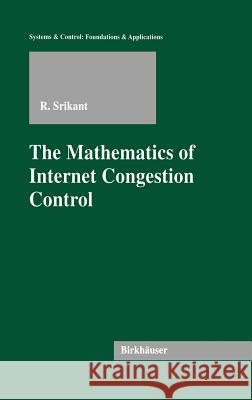The Mathematics of Internet Congestion Control » książka
The Mathematics of Internet Congestion Control
ISBN-13: 9780817632274 / Angielski / Twarda / 2003 / 164 str.
Congestion control algorithms were implemented for the Internet nearly two decades ago, but mathematical models of congestion control in such a large-scale are relatively new. This text presents models for the development of new protocols that can help make Internet data transfers virtually loss- and delay-free. Introduced are tools from optimization, control theory, and stochastic processes integral to the study of congestion control algorithms. Features and topics include: * A presentation of Kelly's convex program formulation of resource allocation on the Internet; * A solution to the resource allocation problem which can be implemented in a decentralized manner, both in the form of congestion control algorithms by end users and as congestion indication mechanisms by the routers of the network; * A discussion of simple stochastic models for random phenomena on the Internet, such as very short flows and arrivals and departures of file transfer requests. Intended for graduate students and researchers in systems theory and computer science, the text assumes basic knowledge of first-year, graduate-level control theory, optimization, and stochastic processes, but the key prerequisites are summarized in an appendix for quick reference. The work's wide range of applications to the study of both new and existing protocols and control algorithms make the book of interest to researchers and students concerned with many aspects of large-scale information flow on the Internet.











